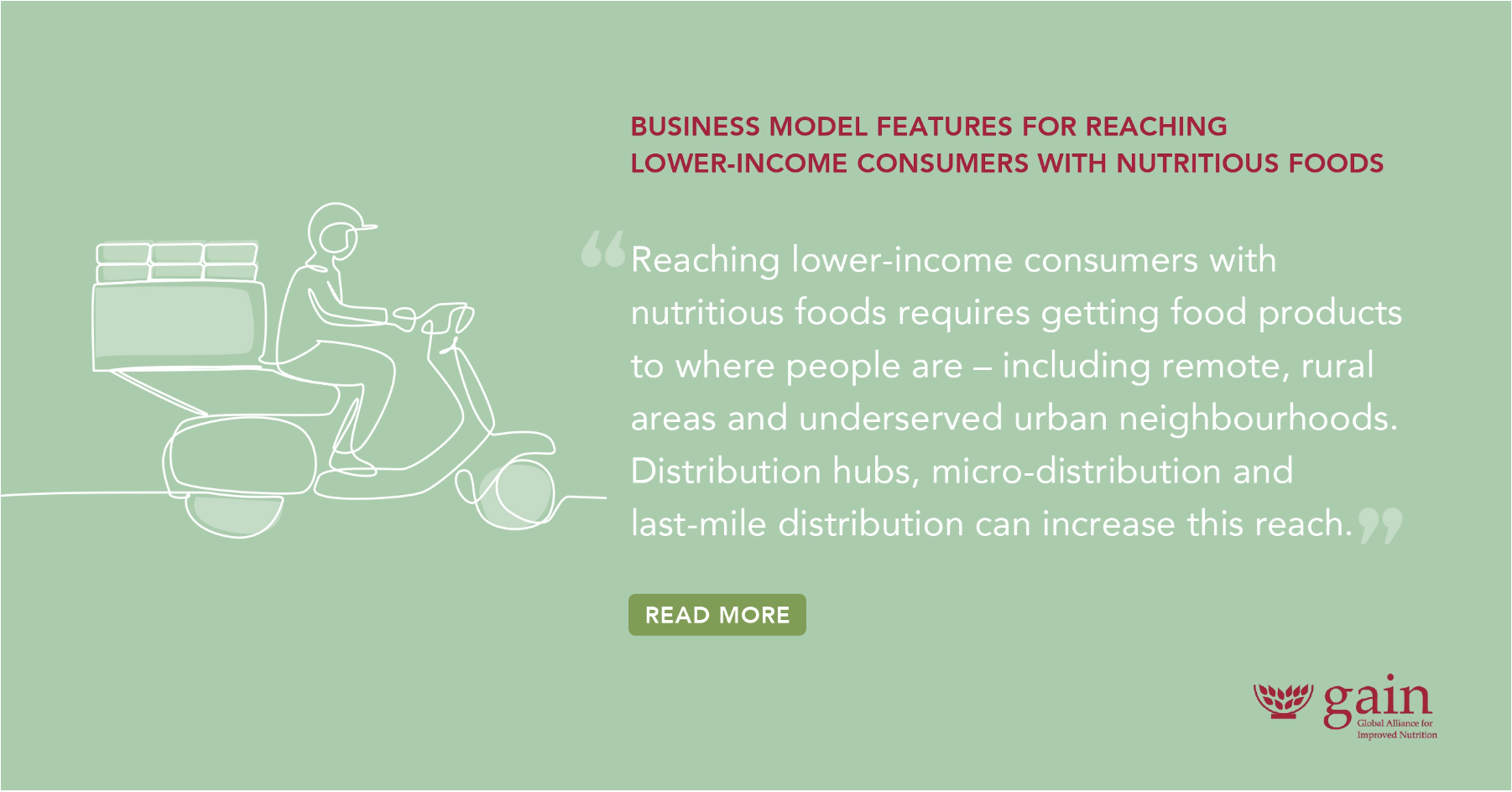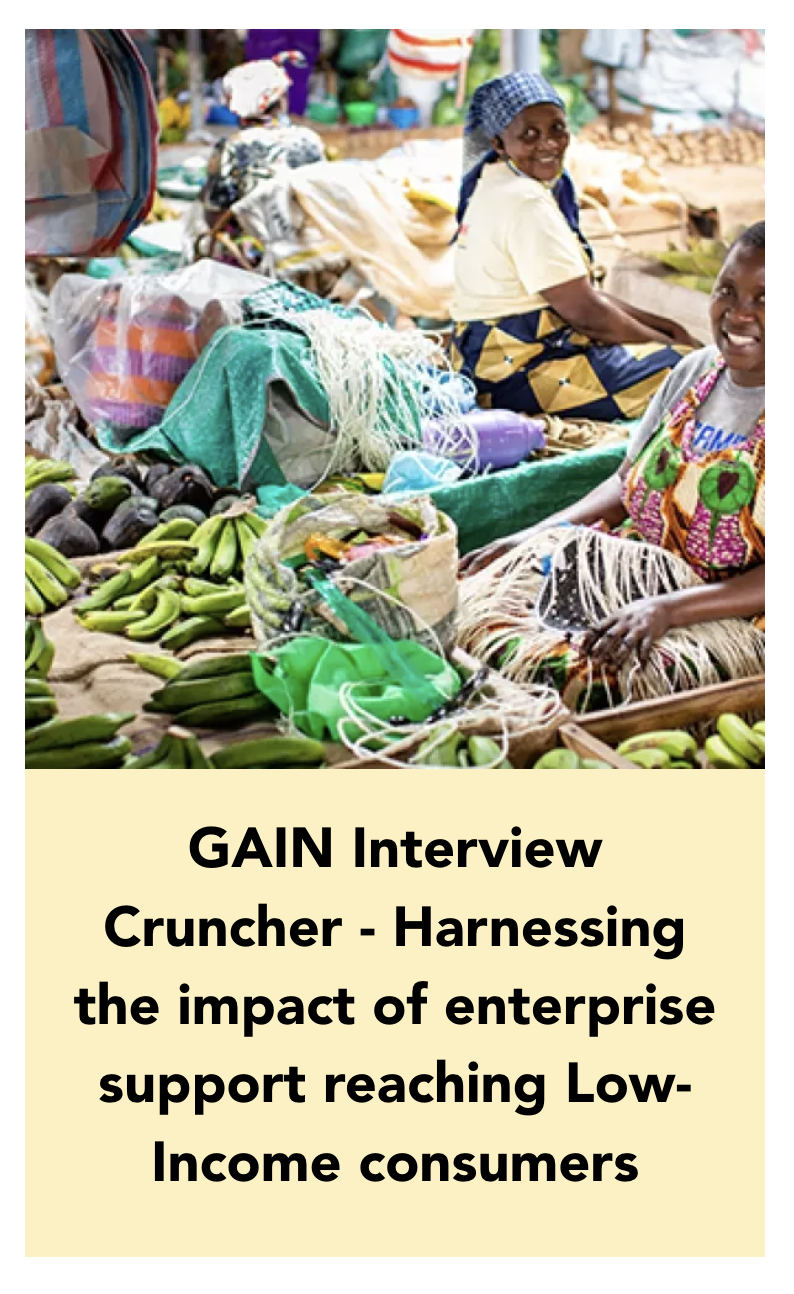What is World MSME Day?
World Micro, Small, and Medium Enterprises (MSME) Day is celebrated on June 27th every year. Founded by the United Nations General Assembly to raise awareness of the tremendous contributions of enterprises to the achievement of the United Nations Sustainable Development Goals (SDGs). SMEs account for 90% of businesses, 60 to 70% of employment and 50% of GDP worldwide, according to the World Bank. As the backbone of societies everywhere they contribute to local and national economies sustaining livelihoods for the very poor among us.
MSMEs in the GAIN Strategy
Seeing how important MSMEs are to reducing malnutrition and improving food systems around the world, GAIN partners with governments, the civil society, among others, to provide targeted interventions towards MSMEs to strengthen their capacity to produce and make safe nutritious foods accessible and affordable to the very poor.
GAIN has developed targeted interventions for MSMEs to strengthen their expertise, knowledge and approach to include nutritious and healthier meals to their food processing and business operations.
These interventions range from technical assistance, grant financing, business to business linkages, technical support for product formulation, capacity building, supply of premixes and fortificants, food safety best practices, innovation challenges, and more.
SME feedback on GAIN’s support
Adenike Adeyemi - Executive Director of FATE Foundation
What has been the impact of GAIN’s engagement on your business innovation models?
GAIN's support has helped us further develop and attach a nutrition lens to our approach of creating, delivering and capturing value and, fostering creative business models, particularly regarding our entrepreneurs in the nutrition space.
How has your engagement with GAIN impacted your support to the SMEs in the food and nutrition ecosystem in your country?
Our partnership with GAIN has enabled us to provide business and technical assistance to SMEs in developing fortified food products. For instance, our entrepreneurs from the last NutriPitch program have gone ahead to develop local food products that are fortified with Vitamin A, Omega 3 fatty acid, and protein from egg whites respectively. They have been able to incorporate nutrient-rich ingredients into their production processes, thereby enhancing the nutritional quality of their products.
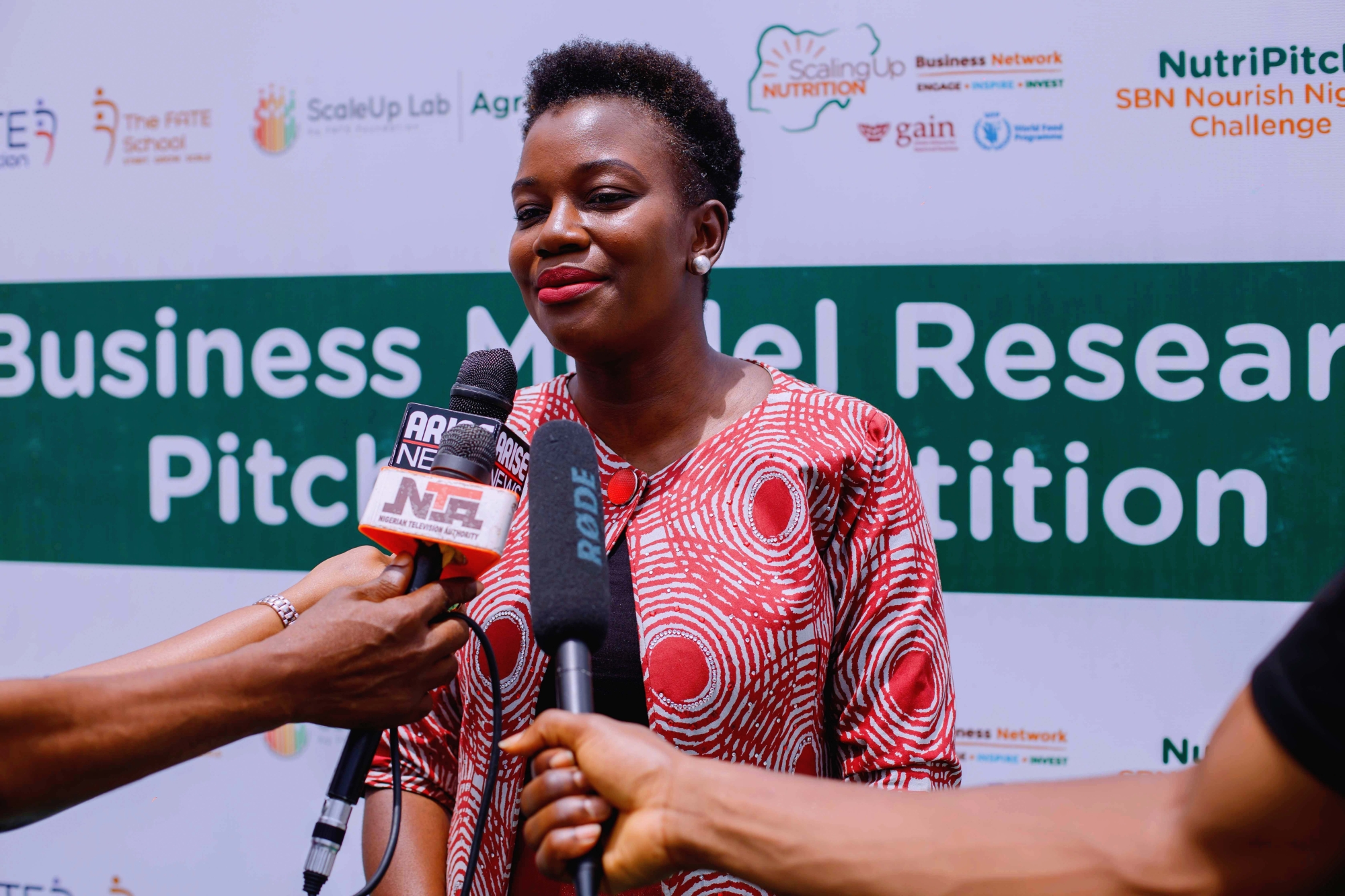
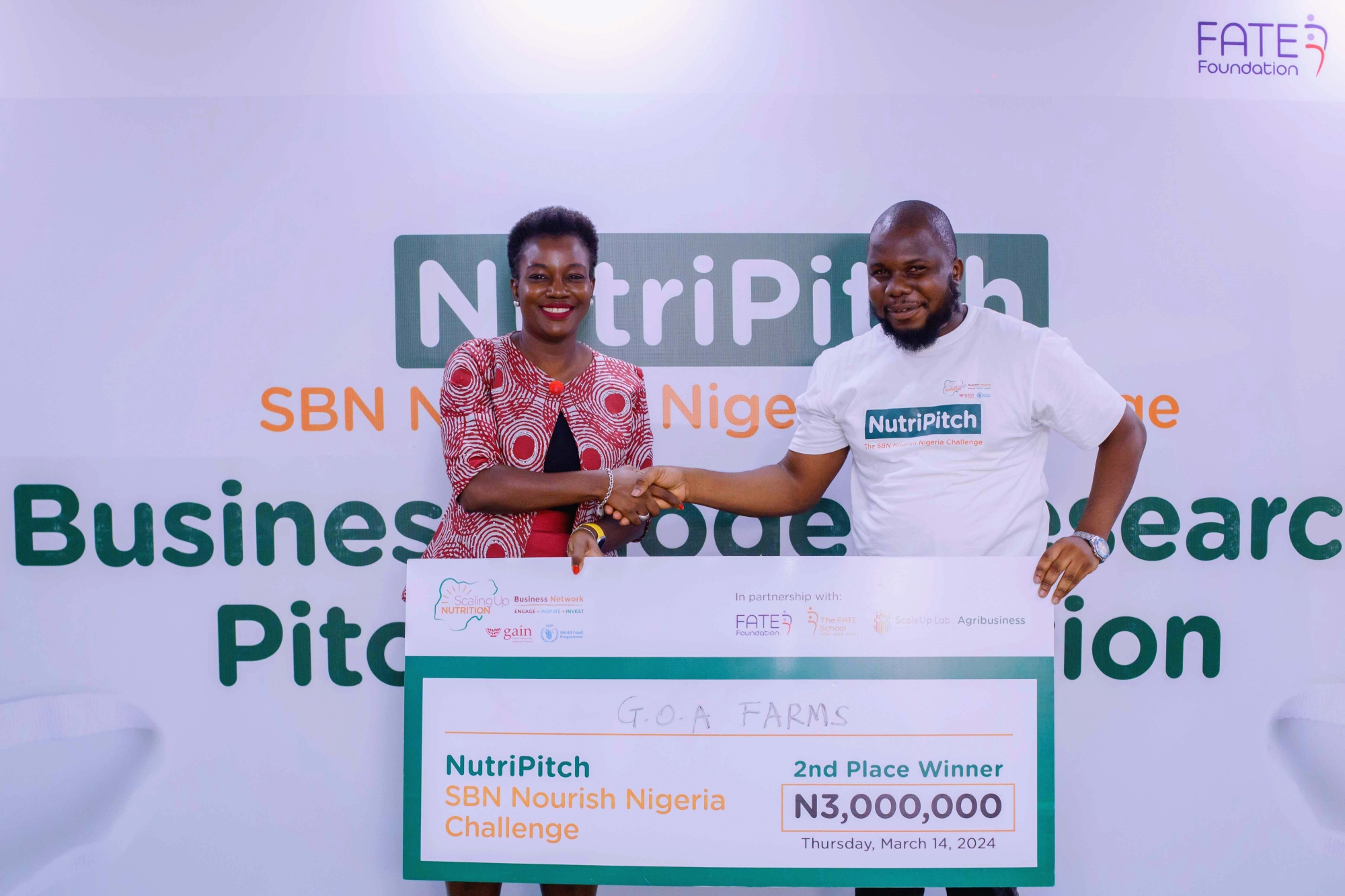
Ibukunoluwa Tubi - CEO of Ibasket.ngfood
What has been the impact of GAIN’s support on your business growth?
GAIN's support has been pivotal, touching various facets of my business operations. Their assistance spans across enhancing sales in critical areas such as quality control, food processing, and even navigating administrative processes like JAMB registration (not sure). This aid has left a profound imprint on my business.
For instance, a notable transformation is evident in the structural setup, particularly in elevating standards of quality control within our food processing facilities. Moreover, their training sessions on packaging have empowered us to refine the brand's identity, thereby magnetising a more desirable target audience. This improvement is a direct result of the invaluable training imparted by GAIN.
Additionally, the 2 Million Naira Micro-grant for Nutritious Food Businesses from the Strengthening Nutrition in Priority Staples (SNiPS) project by GAIN Nigeria, has been a game-changer for my business. With it, we strategically procured essential equipment, which boosting our productivity and efficiency. Formerly, our output stood at a modest 20 units, but with these new machines, we now effortlessly churn out 150 units.
Furthermore, the newfound efficiency has opened doors to participation in prestigious exhibitions, amplifying the brand's visibility on a bigger scale.
Looking ahead, I'm planning to achieve well within the foreseeable future. Just last week, I had an opportunity to attend an Agric Business event attended by dignitaries including the governor and former President General Olusegun Obasanjo, Mr Debo (Adviser to the State Governor on Agric business) and I effectively showcased our business trajectory.
This proactive stance led to official recognition as a grant recipient, receiving a substantial 500,000 grant.
This accolade underscores the tangible impact of GAIN's training on packaging, processing, and overall business acumen—an acknowledgment of our growing influence within the industry.
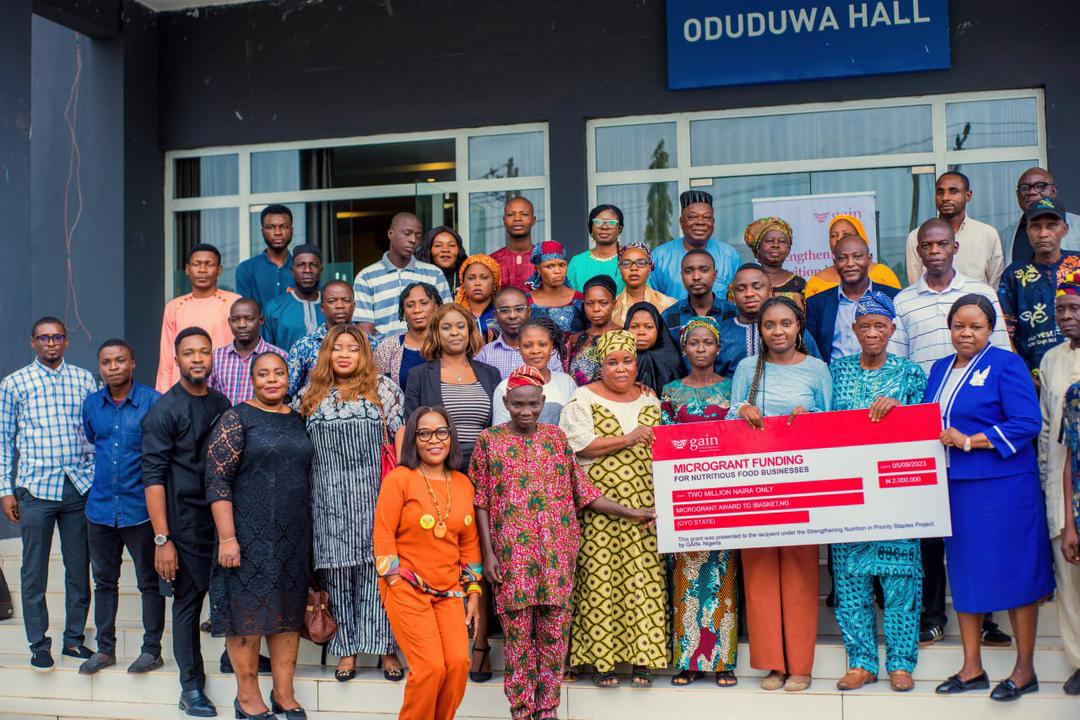
Have you included any innovative idea in your business model since your engagement with GAIN? What is the major feedback from your customers about this innovation?
Absolutely, indeed. One notable innovation stems from the packaging class held by GAIN. Through GAIN's guidance, I acquired insights into packaging sensitive products, particularly those susceptible to sunlight exposure. Integrating this knowledge into my operations, I revamped our packaging strategy by incorporating protective sacks. This simple yet effective measure ensures our products remain shielded from harmful sunlight, preserving their nutritional value.
Furthermore, another initiative emerged from our processing classes. Previously, our focus was primarily on producing cassava flour. However, recognising a shift in consumer preferences, we explored new avenues. This helped us to focus on snack production, particularly focusing on a snack enjoyed by both children and adults alike.
The feedback from my customers has been instrumental in shaping our business strategies. We initially produced flour and cookies, but we observed a significant preference for the cookies, prompting us to shift our focus accordingly. This adjustment sparked numerous positive feedbacks from our customers.
Customers consistently praise the healthiness and taste of our cookies, expressing a desire for product diversification. They specifically request variations such as chocolate and nut-infused options, along with a range of sizes, including larger, medium, and smaller sizes. This response has motivated us to expand our product line to meet evolving market demands.
Moreover, feedback extends beyond product preferences to encompass processing methods and packaging. Customers appreciate the use of healthier ingredients like OSSA and maize, distinguishing our snacks from others in the market. Their suggestions to transform our cookies into easily accessible biscuit forms, perhaps resembling cereal-sized portions, highlight a desire for convenience without compromising on health benefits. Most biscuits are not healthy
In summary, the feedback from our customers serves as a compass guiding our continuous innovation and improvement efforts.
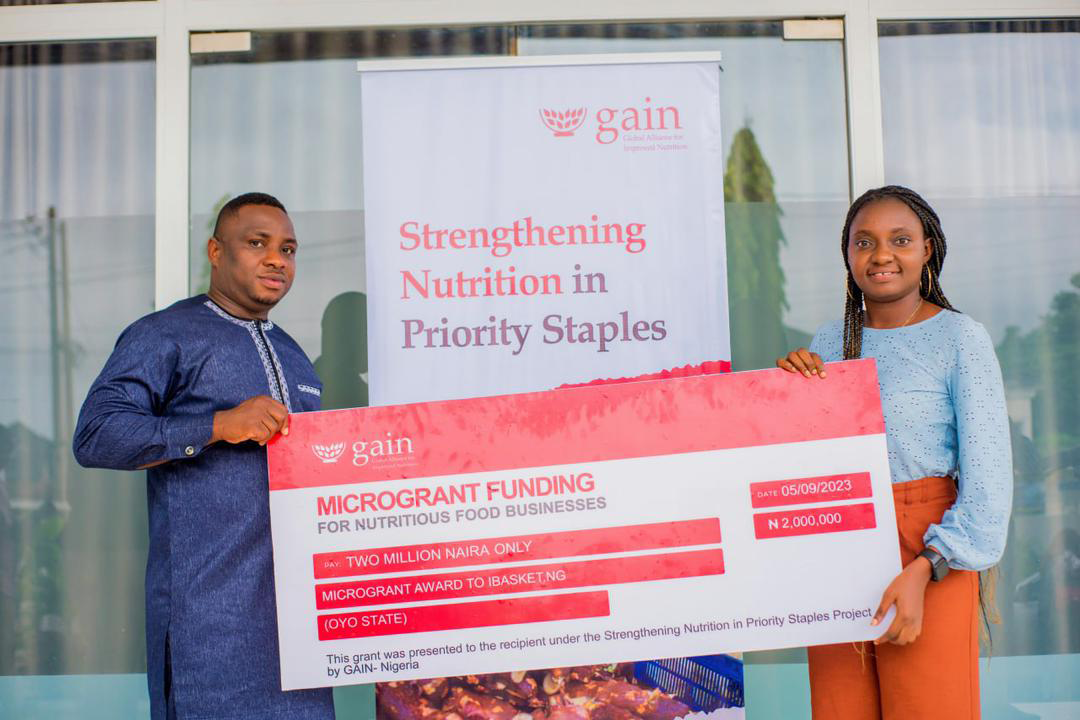
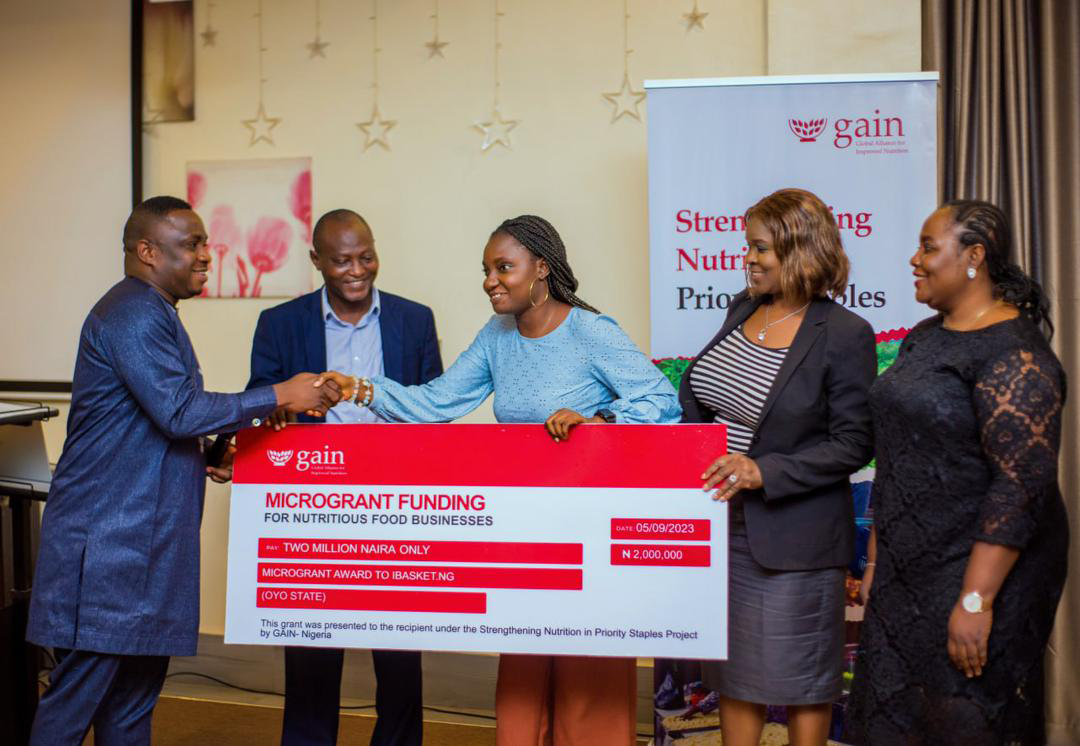
Rois Alfarisi - Chief of Cooperative Mahyra Utama Sejahtera (MUSE):
What has been the impact of GAIN’s support to your business growth?
GAIN has become a significant influence on our business growth. Since 2021, GAIN has assisted us in modifying our business model from providing behavioral change tools for emo-demo to provincial/district level health offices to becoming a facilitator and provider for supplying Potassium Iodate (KIO3). Until now, our cooperative has supported 15 small medium enterprises (SMEs) located in East Java to provide Potassium Iodate and supported 10 SMEs of salt producers in enhancing their production of iodized salt. This has been done through public-private-partnerships in which the MUSE Cooperative has collaborated with government and private sectors to increase sales and to assist SMEs in achieving their production targets.
Have you included any innovative ideas in your business model since your engagement with GAIN? What is the major feedback from your customers about this innovation?
Yes, we have developed some innovative ideas for our business model, such as engaging with the provincial level health and trade and industrial offices to collaborate in building the capacity of for our SMEs partners. We conducted training on titration to meet the national standard of 28-30 ppm KIO3 to 25 SMEs in collaboration with provincial health districts on 25th August 2022. Our customers welcomed our assistance, and they asked us to give more training.
We are also currently engaged with the provincial government of East Java to import high quality KIO3 with lower price from India. As part of the business model, we supervised and monitored SMEs that had purchased KIO3 in East Java. This activity positively impacted sales and, more importantly, was the key to maintaining the sale network by building trust between the salt producers and MUSE Cooperative.
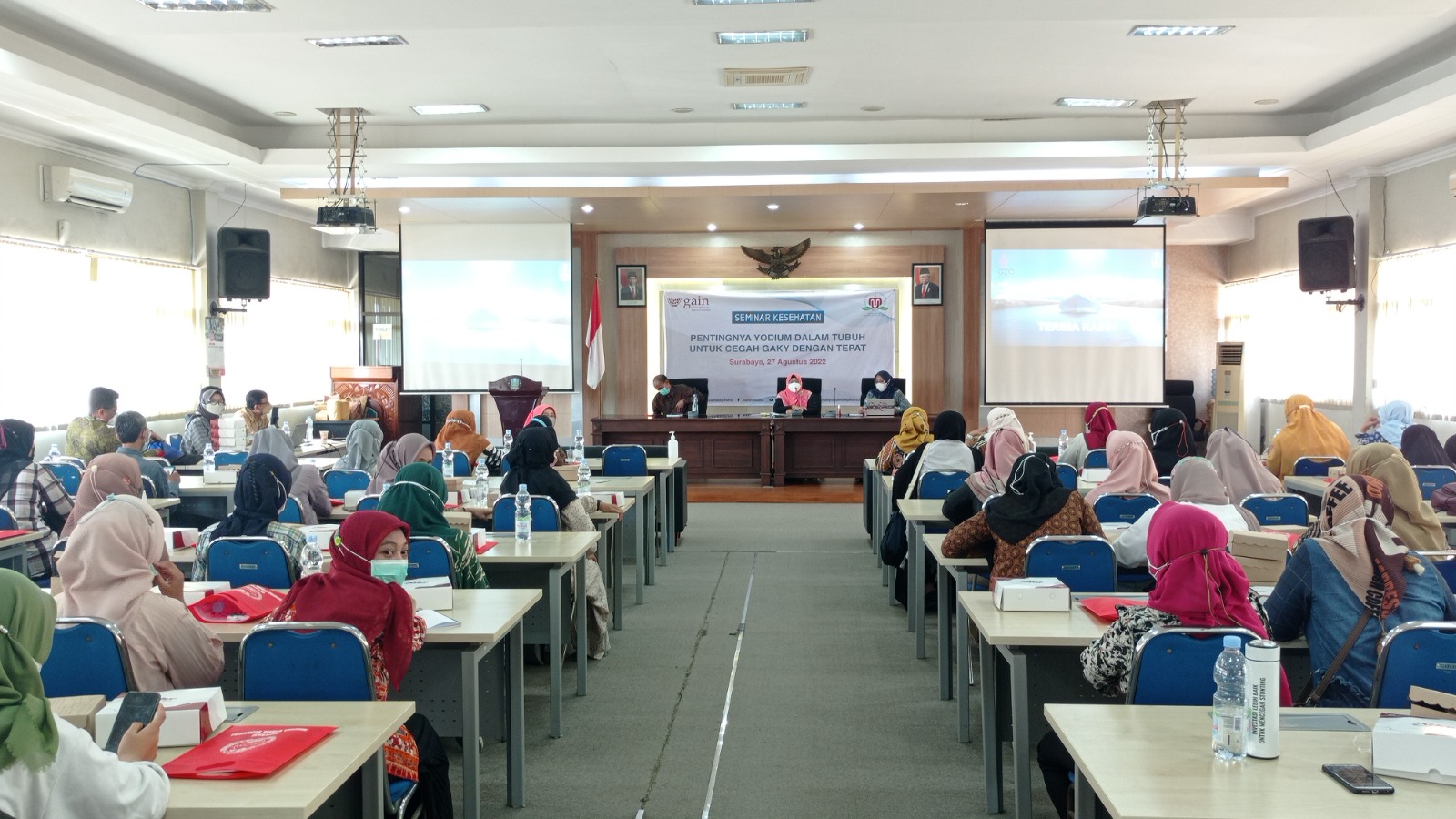
What has been the impact of GAIN’s engagement on your business innovation models?
We have received support particularly technical assistance from GAIN in getting DFAT Australia funding in 2022 with the total value around USD 60,000 to increase our capacity in KIO3 provision and our operational capacity as a cooperative. This funding has significantly impacted on our capacity to engage with more SMEs.
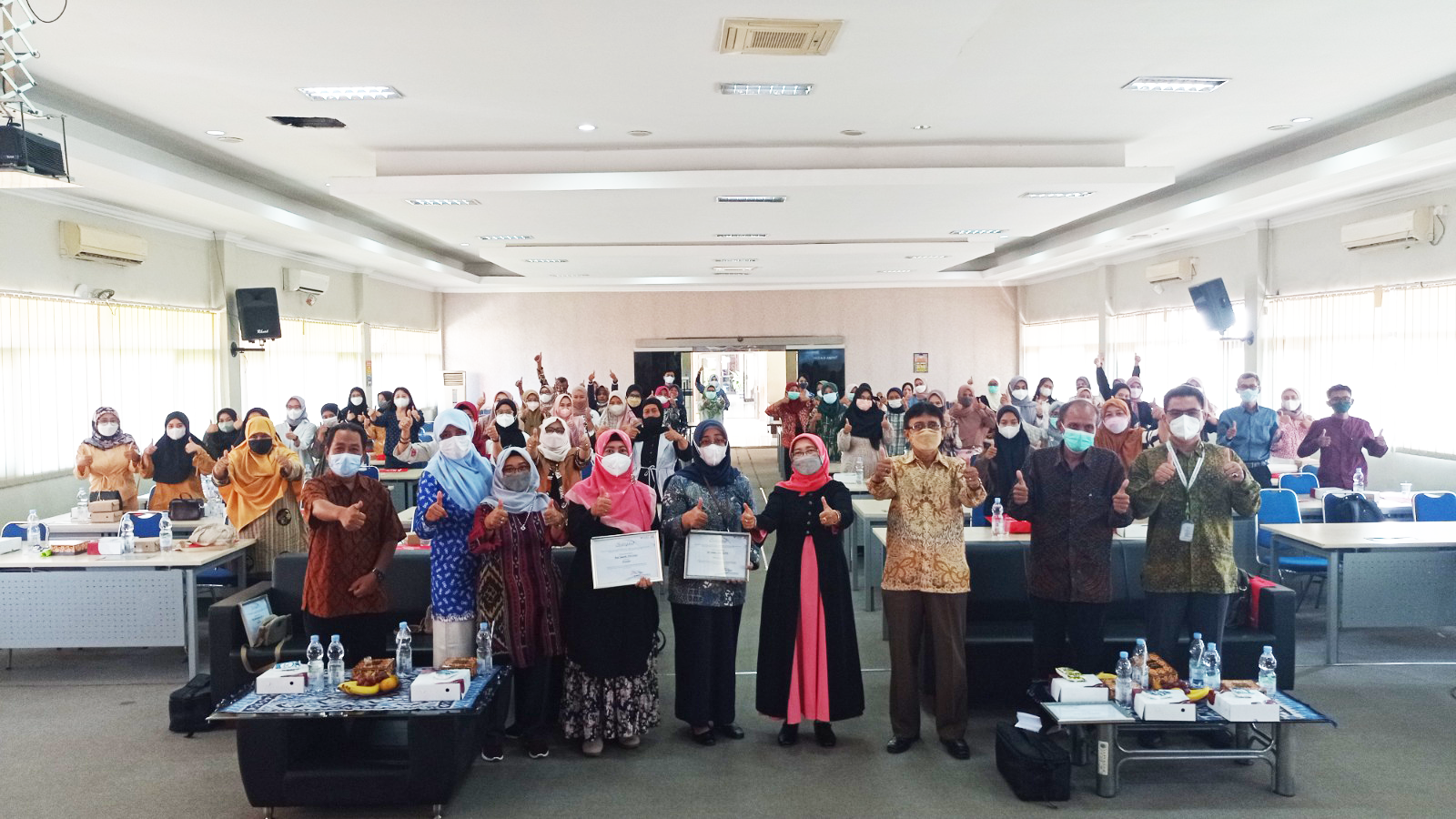
Samira Gomes - CEO of Frangos Mahubo
What has been the impact of GAIN’s support to your business growth?
GAIN Mozambique's support was extremely important when we started this business. At the time I needed safer ways to protect my chicks and I had this support from GAIN Chicks are like humans. They need to be warmed up because they can't resist the cold. Here in Mahubo it’s very cold and when the chicks get too cold, they lose their lives. I warmed up my chicks using wood and coal which was harmful, and I used to lose them. In fact, I lost about five chicks a day and this was extremely hard.
GAIN helped me to create or have a biogas system that has helped me to conveniently warm up my chicks thus preventing them from losing their lives. The biogas system also helps me to convert poultry waste into energy, powering the entire production process.
Have you included any innovative ideas in your business model since your engagement with GAIN? What is the major feedback from your customers about this innovation?
Yes, after identifying this problem related to deaths caused by smoke from firewood and charcoal, GAIN Mozambique supported me in tackling these challenges and increasing profitability by helping me set up a machine that allows me to turn poultry waste into biogas. This not only improves the productivity of my business, but also mitigates the environmental impact on my community.
I would say that this intervention has also helped my local community, since I work a lot with the women within the community. When I arrived here, I found out that women didn’t go out looking for jobs. They were taught to stay at home and not work outside the house. So, I have engaged these women to be responsible for looking after the poultry. They help with the rearing of the chicks, the process of removing the eggs, and packing the chickens in appropriate packaging. However, the distribution of the eggs and chicken meat to the customers, is my job, while the other women help with the whole production process. We work together and I am responsible for teaching them. I am proud of all of us.
In addition to the biogas system, GAIN's support also through the Scaling Up Nutrition Business Network (SBN) has been instrumental in the company's growth. Frangos de Mahubo benefited from a comprehensive business plan, infrastructure improvements, and expansions of poultry equipment and the slaughterhouse. This helped me to structure my company better.
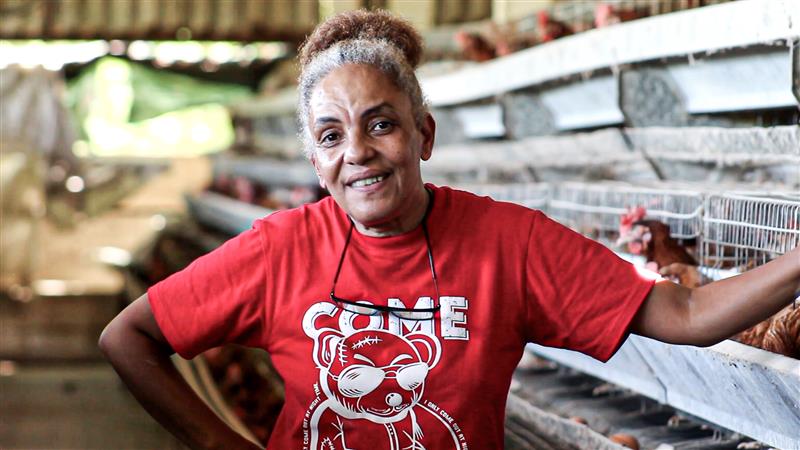
Leveraging innovative business models for nutrition access
On the World MSME Day, the SUN Business Network, in partnership with the SUN Movement, GAIN and World Food Programme seek to present innovative models that agrifood businesses, especially MSMEs, can implement to drive their profitability, while improving affordability and accessibility of nutritious foods by low-income consumers.
Join us for this webinar on 27 June 2024 at 12:00 GMT

13 Business Model Research Interventions for Agrifood SMEs
Funded by the Netherlands Ministry of Foreign Affairs, the Business Model Research project identifies 13 specific ways companies can adapt their offerings to better reach low-income consumers with nutritious foods. These models can help businesses improve the quality of diets—which currently are often lacking in food diversity and quality—if they can provide food that meets customers’ needs at an affordable price.
